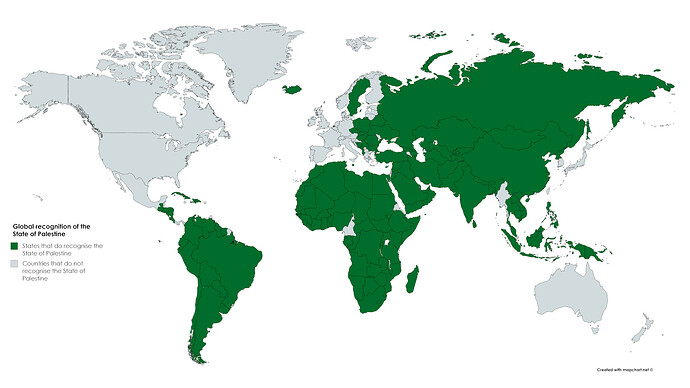Here is a text of introduction I wrote on the morning of May 23, hours before my intervention at EmpoderaLIVE (también en español):
We were supposed to have a dialogue with Arturo Filastò from the OONI project (Observatory Of Network Interference) and “open technologies to guarantee human rights”.
Since he could not make it to Málaga, and this year’s theme is “Decoding Digital Colonialism: Towards the democratization of technological spaces”, I wanted to make a brief introduction on technologies and human rights.
“Digital colonialism” is, like colonialism, a matter of asymmetric power relations, where a mighty party imposes its views to the colonized. Don’t take me wrong: it all comes from a very good intention; those savages don’t know better, and we’re here to help.
Maybe some of you remember this terrible scene on TV, in 2003, in Baghdad. Rounded up women were crying and this Merkan GI, exceeded by their complaints and moans, suddenly burst and shouted: “Shut the fuck up! We’re here to bring you democracy!”
Obviously there’s an abyss between the goal and the means taken to achieve that goal. This is something to keep in mind: the colonialist mind is set on a goal, which is to replace the existing with what the invader considers best, not only – and allow me here to use a gendered term – for himself, but best for all. It would be presumptuous though to dare imagining what’s best for all, don’t you think.
Yet, the colonialist mind comes with intention and certitude.
“We are always right.”
As you may know by now, yesterday Karim Khan, prosecutor of the International Criminal Court (ICC) filled “applications for warrants of arrest before Pre-Trial Chamber I of the International Criminal Court in the Situation in the State of Palestine.” These warrants target the heads of Hamas, as well as the Israeli Prime Minister and its Minister of Defence, for war crimes and crimes against humanity. This is a significant step to bring justice to the victims of war crimes in the Middle-East (this is how occidentals call the eastern coast of the Mediterranean sea, not because it’s the eastern coast, but because, when a world planisphere is centred on Europe, then it’s nearly half-way to Far-East).
Immediately, the “international community” reacted to support Netanyahu, calling Khan’s decision “a scandal” (Joe Biden)… Uri Avneri, a German Jew who settled in Palestine in 1933, and who fought in the Zionist armed militias before the creation of the State of Israel, to later become a writer, a journalist, an elected deputy at the Knesset, Israel’s parliament, and a founder of the Israeli peace movement Gush Shalom, published in 2009, 15 years before Operation Protective Edge (“Operation Strong Cliff” in Hebrew) against Gaza in 2014[1]. Avnery was considering the role of propaganda in the war on Gaza, and did not hesitate to invoke both the Russians and the Nazis in this made up retell of the Battle of Stalingrad, as if the other side had won:
Nearly 70 years ago, in the course of World War Two, a heinous crime
was committed in the city of Leningrad. For more than a thousand
days, a gang of extremists called ‘the Red Army’ held the millions
of the town’s inhabitants hostage and provoked retaliation from the
German Wehrmacht from inside the population centres. The Germans had
no alternative but to bomb and shell the population and to impose a
total blockade, which caused the death of hundreds of thousands.Some time before that, a similar crime was committed in England. The
Churchill gang hid among the population of London, misusing the
millions of citizens as a human shield. The Germans were compelled
to send their Luftwaffe and reluctantly reduce the city to ruins.
I was told earlier about a more local example involving two natives from Málaga (slide showing Guernica painting by Picasso, with the face of Luis Bolín hidden there), one of them is hidden. In 1937, Guernica was destroyed entirely. Luis Bolín, chief of Propaganda of Franco, told the world that the Republicans, retreating to Bilbao, dynamited their own city. Only after Franco’s death the truth about this was confirmed: that the Luftwaffe bombarded the city, as we know it today.
So, if we’re talking about colonized spaces, we should keep in mind that the colonizer is always right, his intentions are always noble, the enemy is always heinous, and if you disagree, you’re a traitor. I want to refer you to the very useful handbook of 10 Principles of War Propaganda by Anne Morelli, who demystifies and deconstructs war propaganda’s invariants.
Now back to our program: in the context of decoding digital colonialism, we cannot apply the same reading grid as for territorial colonialism. Except if we consider that all these digital spaces requires humongous extractive powers, gigantic mining pits, a insane amount of water put to waste, and sacrificed populations, just to get the raw materials that will end up in our electronic devices, millions of kilometers of cables and power-hungry data-centres. Most of the computers (including electric cars and their 1500 microchips each) require four times more energy they will consume over their lifetime usage, just to be built.
What do we have to fight this Leviathan? Free software, enthusiastic humans, and a handful of euros in the face of the monster ; a slingshot against an armoured tank. Now, I’m closing the parenthesis on colonialism, digital colonialism, and the asymmetry of power. But keep it in mind, it’s been there all along. What we’re up against is a dominant narrative of warfare. What we need is a narrative insurrection.


